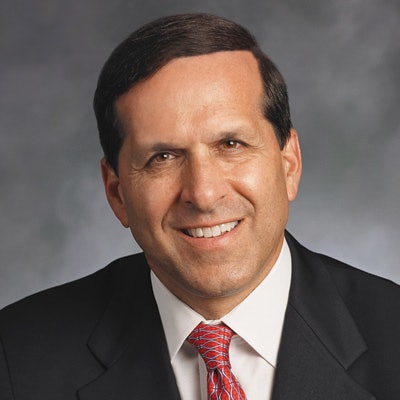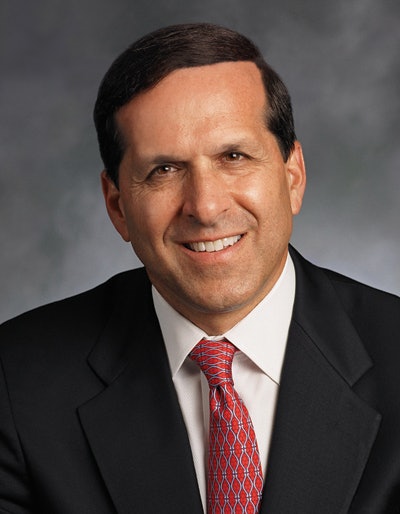
Most dentists don't believe that they micromanage, but they really must check themselves and understand what micromanagement means.
Micromanagement is defined as "controlling every part, however small, of an enterprise or activity." Many dentists don't try to control every part; they do control every part. This behavior occurs when they don't trust the skill set or capability of the team. Other times, it happens because they can't let go or they don't know how to delegate.
One thing micromanaging always does is display to the team that the dentist has a lack of confidence.
Why micromanagement is bad
 Dr. Roger P. Levin.
Dr. Roger P. Levin.Those who micromanage often are not aware of the impact that their actions have on team members and the practice. Normally, you would identify a micromanager as someone who spends their day walking around and watching everything that others do. They are constantly commenting, checking, correcting, and acting as a quality control department.
However, what they are doing is training their team to only work up to a certain level and expect that the doctor or office manager will correct, criticize, modify, and clean up tasks. This sends a strong message to the team that the doctor or office manager lacks confidence in their abilities.
Many micromanagers feel like they are jumping in to "save the day" and preventing team members from making mistakes. What they fail to understand is that acting like a hero is not always positive, and they don't realize how it makes the team member feel.
Allow me to quote a dental team member who recently described her doctor as a micromanager:
"Our doctor does not trust us and really does not trust anybody. We always feel like he is leaving treatment rooms and looking around to see what's going on and very often intervenes in what we are doing. We are told that we are not doing the job properly or that the way we are doing the job will not get the right result. If our compensation wasn't so high, I would probably leave and join a practice where the team has more independence and is trusted."
You might want to read that statement again because it is very revealing. Micromanaging is guaranteed to bring in lower-performing team members who don't have the desire for personal growth and are more than satisfied to let someone else tell them what to do most of the time. It also ensures that excellent team members with great capabilities will often leave for other offices where they feel more useful and independent.
Micromanaging may be seen as arrogance
Another key problem with micromanagement is that micromanagers consistently come across as arrogant. We have seen new office managers unknowingly use this approach when joining a practice, only to find that they have driven off several good team members and are resented by the remaining team. I've heard of one dentist who was told that the office manager was so arrogant that no one wanted to work with her.
Unfortunately, if this behavior continues, the office manager will only attract people who are willing to be micromanaged, and these people will work at a lower level.
Don't be a bully
Some micromanagers are perceived as bullies. Nobody likes bullies, and using bullying tactics is no way to build a team.
Bullying takes many forms. It could be blaming others, humiliating them, or even threatening them.
If you have anyone who appears like a bully through micromanagement, the team will never be able to build better self-esteem and self-confidence. Furthermore, the practice will consistently operate at a lower level, which is a guaranteed way to lower practice production, profit, and income.
Give away the credit
One of the best things you can do to stop or avoid the effects of micromanagement is to stop worrying about how people do their jobs and focus on measuring the results. When the results are good, compliment team members in front of others, recognizing them for a job well done and thanking them for excellent results.
Keep in mind that good leaders spread the credit around. If you're always complimenting the same one or two team members, you'll build resentment with others. By spreading credit daily to a variety of team members, you'll build the self-esteem and confidence of your team.
Summary
Great leaders don't micromanage and hate when they have to. Instead, they find team members and training opportunities that allow people to succeed at their jobs independently and then congratulate them when they achieve excellent results.
Your team members may not do things the same way you would do them, but it doesn't mean that they won't get excellent results. If you watch the process, you may be motivated to jump in and correct how it is being done. But if you measure the results and the results are good, the best thing you can do is give a compliment and walk away. You can be sure that the team member can achieve the same result repeatedly -- even if it's not the way you would do it.
Dr. Roger P. Levin is CEO of Levin Group, a leading practice management and marketing consulting firm. To contact him or to join the 40,000 dental professionals who receive his Practice Production Tip of the Day, visit LevinGroup.com or email [email protected].
The comments and observations expressed herein do not necessarily reflect the opinions of DrBicuspid.com, nor should they be construed as an endorsement or admonishment of any particular idea, vendor, or organization.



















